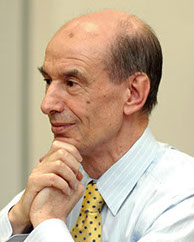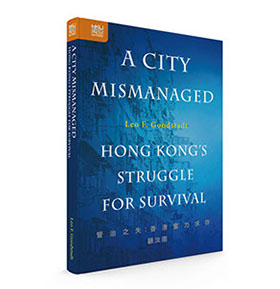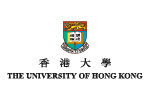
The book, entitled A City Mismanaged: Hong Kong’s Struggle for Survival, is written by Leo Goodstadt, a leading economist, HKU Honorary University Fellow and chief policy adviser to Hong Kong’s colonial government from 1989 to 1997.
He puts the case that Hong Kong’s post-1997 leaders have emulated private sector models in public administration and imposed overly tight control on public services. Describing the problem as ’gross mismanagement’, he emphasised that it has not been caused by Hong Kong’s political system but by what he terms ‘the incompetent performance of the individual power holders’.
Mr Goodstadt, who has lived in Hong Kong since 1962, felt driven to write this book when he was completing another book in 2013 investigating poverty in Hong Kong. He was shocked by how seriously the social and health services had deteriorated and by the number of families left living in need.
“Even more alarming was the extensive evidence I collected from official sources that this grim situation was avoidable,” said Mr Goodstadt. “It had been created and aggravated by those in high office: by chief executives – Tung Chee-wah, Donald Tsang, CY Leung and the present incumbent Carrie Lam – and their ministers.”
He felt that the book he was writing then, Poverty in the Midst of Affluence, was only part of the story. “Although over 80 per cent of the population were classified as living above the official poverty line, large numbers of them were facing serious threats to their standards of living because of poor performance by the government,” he said.

![]() Hong Kong must be close to being the world’s most civilised city – even under very unfavourable circumstances. It sometimes seems that the more incompetent the government shows itself, the better the performance of Hong Kong people.
Hong Kong must be close to being the world’s most civilised city – even under very unfavourable circumstances. It sometimes seems that the more incompetent the government shows itself, the better the performance of Hong Kong people. ![]()
Mr Leo Goodstadt
“Hong Kong must be close to being the world’s most civilised city – even under very unfavourable circumstances. It sometimes seems that the more incompetent the government shows itself, the better the performance of Hong Kong people.”
He feels that given Hong Kong’s political maturity and social discipline, miracles could be worked if the governing team “took courage, trusted the public, accepted the need for action”.
He concluded: “In the meantime, however, we continue to gaze in wonder at the MTR Corporation as the media report, day after day, more alleged breaches of contract, inadequate supervision of construction work, and the lack of emergency measures to take control of a mounting scandal almost unparalleled in Hong Kong’s history.”
Extensive failure
“There was extensive failure by those in power to implement laws and regulations and to provide the money to tackle the serious threats to the well-being of all Hong Kong social classes except the truly rich.
“The dangers to the health and safety of those living in private housing were particularly alarming. By 2011, the Urban Renewal Authority had reported 110,000 families in the private sector were already living in ‘homes that are neither healthy nor safe’. Life was made ‘miserable by the dirt, decay and lack of amenities that the rest of the community takes for granted’.
“There was ‘the risk from the disease and dangers’ in 4,000 buildings erected 50 or more years earlier. Typically, three or more families were packed into the average living unit of around 500 square feet. The common areas were filthy and prone to flooding, and there was a constant threat of fires caused by defective electrical wiring and fittings.”
He had also collected a lot of data on other threats to the average family: in particular to the post-secondary education of their children.
In light of all this, he decided to broaden his scope of study, and A City Mismanaged: Hong Kong’s Struggle for Survival is the result. Mr Goodstadt believes that where the chief executives have gone wrong is in their belief that the business world and profit motive provide the formulas for success in managing the public services.
“In reality, this ‘free market’ doctrine cannot be trusted to work honestly and effectively by itself,” he argued. “That is why we have tough controls on banking and the stock market to prevent fraud and misuse of depositors’ funds and shareholders’ investments. The medical professions have to be tightly regulated, as do lawyers and accountants. Thus, it makes no sense to believe that market competition can be relied on to solve housing shortages or to guarantee adequate education or public safety.”
He blames the chief executives for refusing to recognise the limitations of the free market approach, and accuses them of ignoring the costs to the community in their failure to provide adequate funds and staffing to ensure that laws are fully enforced and proactive policies implemented. Given that Hong Kong’s public finances have been abundant throughout the period in question, he feels there is no valid excuse for budget austerity.
Determined population
On the plus side, he believes that the situation can be rectified, given the city’s political maturity and the determination and strength of its population.
Mr Goodstadt said: “This is a city where, despite the years of government-induced economic recession, average labour productivity continued to improve each year at a faster rate than in Singapore, the United States and other advanced economies. Industrial disputes are among the fewest in the world. Crime rates have fallen.
City Limits
A new book argues that ‘gross mismanagement’ by Hong Kong’s four chief executives has caused unnecessary hardship and left people badly in need.
A City Mismanaged:
Hong Kong’s Struggle for Survival
Author: Leo F Goodstadt
Publisher: Hong Kong University Press

Home
November 2018
Volume 20
No. 1

